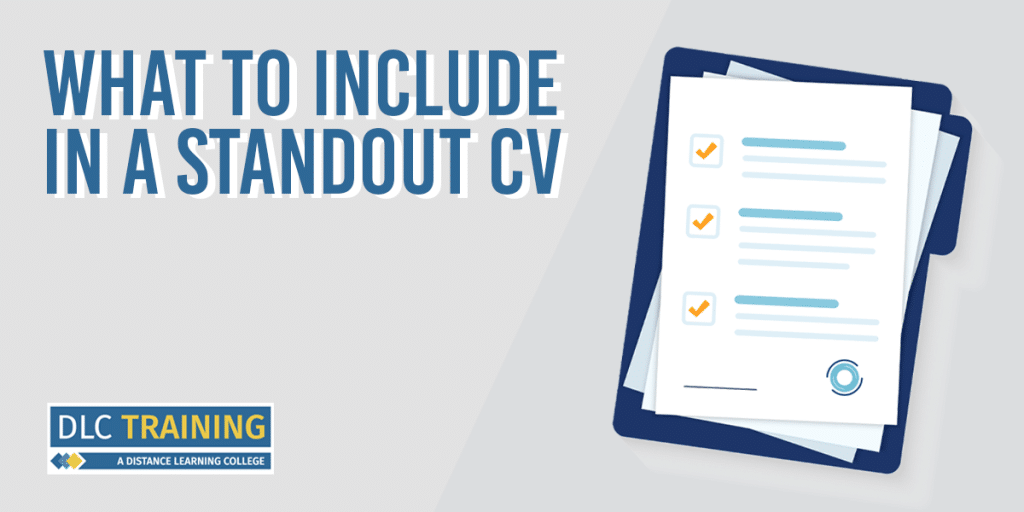Your CV (Curriculum Vitae) is your professional calling card, often serving as your first impression to potential employers before you’ve even had a chance to speak to them. An effective CV can open doors to new career opportunities and set you apart from the competition. Whether you’re a recent graduate or an experienced professional looking to make a career change, here are some essential tips to help you improve your CV.

1. Start with a Strong Summary
Begin your CV with an interesting summary statement that highlights your key qualifications, experience, and career goals. This is your opportunity to make a memorable first impression and grab the recruiter’s attention. Keep it concise, yet impactful.
2. Tailor Your CV for Each Job Application
One size doesn’t fit all when it comes to CVs. Customise your CV for each job you apply for by emphasising relevant skills, experiences, and achievements that align with the specific job requirements. Review the job posting carefully to identify keywords and phrases to incorporate and show off your relevant background for the role.
3. Highlight Your Achievements
Rather than merely listing your job responsibilities, focus on your accomplishments. Use numbers and details of your achievements to demonstrate your impact. For example, instead of saying “Managed a marketing team,” you could say, “Led a team of 5 marketers that increased website traffic by 30% and generated a 15% boost in sales.”
4. Use Action Verbs
Start each bullet point with a strong action verb to make your accomplishments more varied and engaging. Words like “achieved,” “implemented,” “created,” and “solved” convey a sense of action and accomplishment.
5. Showcase Your Skills
Dedicate a section of your CV to highlight your relevant skills. Include both technical and soft skills, such as project management, data analysis, communication, or leadership. If applicable, mention any certifications or training programs you’ve completed.
6. Prioritise Relevant Experience
Place your most relevant work experience towards the top of your CV. If you have significant experience in your field, consider including a “Relevant Experience” section and an “Additional Experience” section to emphasise the most pertinent roles.
7. Include Education and Certifications
List your educational background, starting with the most recent degree. Include the institution, degree earned, graduation date, and any honours or awards received. If applicable, showcase relevant certifications and professional development courses.
8. Quantify and Qualify
Whenever possible, use numbers and percentages to quantify your achievements. This helps recruiters and hiring managers gauge the impact of your work. Additionally, provide context by explaining the significance of your accomplishments.
9. Pay Attention to Formatting
A well-organised and visually appealing CV is more likely to capture attention. Use a clean, professional font and a consistent format throughout. Use bullet points for clarity and readability, and avoid lengthy paragraphs.
10. Proofread and Edit
Errors in your CV can create a negative impression. Carefully proofread your document to catch spelling, grammar, and formatting mistakes. Consider asking a trusted friend or colleague to review it as well.
11. Include Relevant Keywords
Many companies use tracking systems to screen CVs before they’re even in the hands of a human. To improve your CV’s chances of passing through these systems, include relevant keywords and phrases from the job description. However, ensure that your use of keywords is natural and not forced.
12. Be Honest and Authentic
Honesty is crucial. Never exaggerate or fabricate qualifications or accomplishments on your CV. Authenticity is valued by employers, and being truthful builds trust.
13. Keep It Concise
While it’s important to include relevant details, aim for brevity. A CV should ideally be no longer than two pages, especially if you’re early in your career. Focus on quality over quantity.
14. Consider a Personal Statement
In addition to your summary, consider adding a brief personal statement that highlights your career aspirations and what makes you a unique candidate. This can add a personal touch to your CV.
15. Update Regularly
Your CV should evolve as your career progresses. Regularly update it to include new achievements, skills, and experiences. This will ensure that you’re always ready for new opportunities.
Remember that your CV is a one-page document that reflects your professional journey. By following these tips and regularly refining and updating your CV, you can create the perfect representation of your skills and accomplishments, increasing your chances of landing your dream job.